What is Backcountry Camping? An In-Depth Exploration of Wilderness Adventures
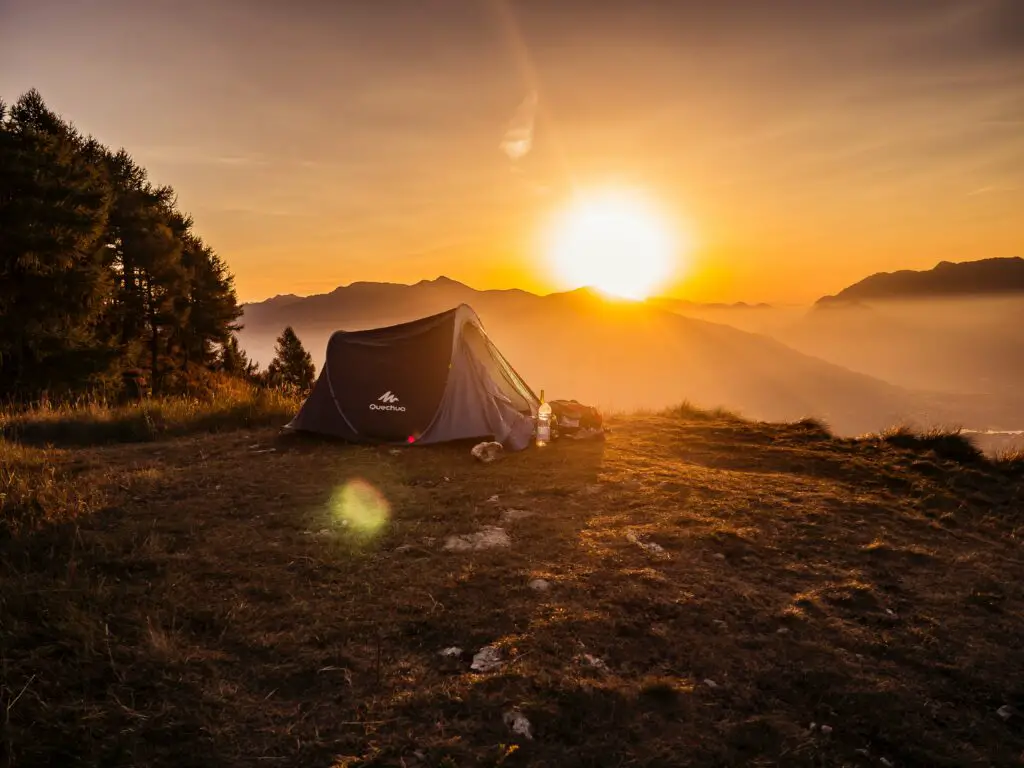
Imagine standing atop a majestic mountain peak, surrounded by untouched wilderness as far as the eye can see. The crisp air fills your lungs, and the serenity of the natural world envelops your senses. This is the allure of backcountry camping—the opportunity to immerse yourself in nature’s untamed beauty and embark on a wilderness adventure unlike any other.
Backcountry camping, also known as wilderness camping or primitive camping, takes outdoor enthusiasts beyond established campgrounds and into remote and secluded areas of nature. It offers an authentic and immersive experience that allows you to reconnect with the earth and find solace in the simplicity of the wild. In this article, we will embark on an in-depth exploration of backcountry camping, unraveling its definition, delving into its benefits, offering practical tips, and highlighting some of the most breathtaking destinations for your own wilderness adventures.
No matter if you’re an experienced camper seeking a new level of challenge or someone yearning to escape the confines of city life and embrace the natural world, backcountry camping opens the door to a world of exploration, self-discovery, and unforgettable moments. So, let’s embark on this journey together as we uncover the essence of backcountry camping and discover why it is an experience truly worth pursuing.
What is backcountry camping?
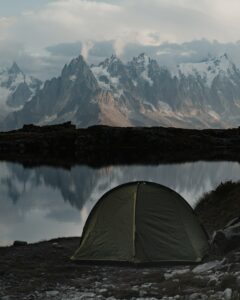
Backcountry camping refers to the practice of setting up camp in remote and undeveloped areas of the wilderness, away from established campgrounds and modern amenities. It involves venturing into unspoiled natural environments, often requiring hiking or backpacking to reach these secluded destinations. Unlike traditional camping, backcountry camping emphasizes self-sufficiency, exploration, and a deeper connection with nature.
Backcountry camping stands in contrast to front-country camping (car camping or RV camping), where campers can easily access campsites by vehicle and enjoy amenities such as electricity, running water, and designated campsites. In backcountry camping, you rely on your own physical abilities to access remote areas and must carry your gear and supplies with you.
Overlanding is a form of backcountry camping where specialized 4-wheel drive vehicles are utilized to access backcountry areas and campsites. While dependent on vehicles, overlanding provides the benefits of car camping with the seclusion and remoteness of backcountry camping.
Backcountry camping has roots in humanity’s primal connection to nature. Throughout history, people have ventured into the wilderness to seek sustenance, spiritual enlightenment, and a respite from civilization. However, modern backcountry camping as a recreational activity gained popularity in the late 19th and early 20th centuries as people began to appreciate the beauty and serenity of untouched natural landscapes.
Pioneers like John Muir, Henry David Thoreau, and other early conservationists were instrumental in advocating for the preservation of wilderness areas and encouraging individuals to venture into the backcountry. Their writings and philosophies helped shape the modern understanding and appreciation of backcountry camping.
Over time, advancements in outdoor gear, navigation technology, and environmental awareness have further refined and expanded the practice of backcountry camping. Today, it has become a beloved activity for adventurers seeking a deeper connection with nature and an escape from the pressures of modern life.
Exploring the Benefits of Back Country Camping
Connecting with nature

Backcountry camping provides a unique opportunity to disconnect from the noise and distractions of everyday life and immerse yourself in the beauty and tranquility of nature. Surrounded by towering trees, breathtaking landscapes, and the sounds of wildlife, you can experience a deep sense of peace and rejuvenation. The sights, sounds, and smells of the wilderness awaken your senses and offer a profound connection to the natural world.
In a world filled with constant noise and demands, backcountry camping offers a chance to escape the busy urban environment and find respite in the serenity of the wild. The absence of modern conveniences and technology allows you to disconnect from the digital world and reconnect with the simplicity of life. It’s a chance to slow down, breathe in fresh air, and appreciate the beauty that surrounds you.
Building self-reliance and resilience
Backcountry camping requires self-reliance and problem-solving skills. As you navigate rugged terrains, face unpredictable weather conditions, and make decisions about water sources and shelter, you develop a heightened sense of self-reliance and adaptability. Overcoming these challenges fosters resilience and a sense of accomplishment, boosting your confidence and ability to handle adversity both on the trail and in everyday life.
Backcountry camping often involves primitive camping techniques, such as building fires, purifying water, and setting up camp with minimal gear. These experiences allow you to hone essential survival skills and embrace your resourcefulness. Learning to make do with limited resources and finding creative solutions to unexpected situations can be empowering and foster a sense of self-sufficiency.
Seeking solitude and serenity
Backcountry camping offers a unique opportunity to experience solitude in its purest form. Far away from crowded campgrounds and popular tourist spots, you can find solitude in the vast expanses of wilderness. The stillness and silence of remote environments provide space for introspection, self-reflection, and a sense of peace that is hard to find in the hustle and bustle of daily life.
Stepping away from the distractions of modern life and immersing yourself in nature can have a profound impact on your mental well-being. Backcountry camping allows you to disconnect from screens, obligations, and the pressures of society, giving you the space to find clarity, reduce stress, and gain a fresh perspective. It’s an opportunity to quiet the mind, practice mindfulness, and cultivate a deeper connection with yourself and the natural world.
By embracing the benefits of backcountry camping, you can embark on a transformative journey that reconnects you with nature, strengthens your resilience, and nourishes your soul.
Essential Gear and Preparation
Choosing the right equipment

Selecting lightweight and durable camping gear is crucial for backcountry camping. Look for backpacking tents that are compact, easy to set up, and designed to withstand varying weather conditions. Consider investing in a quality sleeping bag that provides warmth and comfort while being lightweight enough to carry on long hikes. Additionally, research and choose gear appropriate for the specific environment you’ll be camping in, such as a sturdy backpack, hiking boots, and appropriate clothing layers.
Since you’ll be carrying your gear for extended periods, prioritize lightweight and compact options to minimize the strain on your body. Look for backpacking equipment made from lightweight materials without compromising durability. Opt for collapsible or foldable utensils, compact cooking stoves, and portable water filtration systems to keep your gear streamlined.
Backcountry camping requires a commitment to preserving the natural environment. Familiarize yourself with the Leave No Trace principles, which include practices such as packing out all trash, disposing of waste properly, minimizing campfire impact, respecting wildlife, and staying on designated trails. By adhering to these principles, you can help protect the fragile ecosystems you explore.
Safety considerations
Navigation tools and maps – Carrying a reliable map and compass, and knowing how to use them, is essential for backcountry camping. Familiarize yourself with the area’s topography, landmarks, and potential hazards before embarking on your trip. Consider bringing a GPS device or smartphone app as an additional navigation tool, but always have a backup plan in case of technology failure.
First aid kits and emergency supplies – Be prepared for emergencies by packing a comprehensive first aid kit. Include items such as bandages, antiseptic wipes, pain relievers, blister treatments, and any necessary prescription medications. Additionally, carry emergency supplies like a whistle, signal mirror, emergency blanket, and a multi-tool to help you handle unexpected situations.
Planning and permits
Before setting out on your backcountry adventure, research different destinations to find the one that aligns with your skill level, preferences, and desired experience. Consider factors such as terrain difficulty, water sources, wildlife activity, and camping regulations. National park websites, hiking forums, and guidebooks are valuable resources for gathering information.
Many backcountry areas require permits to control visitor numbers and protect the wilderness. Research and apply for any required permits well in advance of your trip. Familiarize yourself with the specific regulations for the area you’ll be camping in, including camping restrictions, fire regulations, and rules regarding food storage and wildlife encounters.
By preparing with the right gear, prioritizing safety, and respecting the environment, you’ll ensure a smoother and more enjoyable backcountry camping experience. Remember, proper planning and preparation enhance your ability to immerse yourself in nature and make the most of your wilderness adventure.
Tips for Backcountry Camping
Tip #1: Choose Your Campsite Wisely
Look for a flat and level area to set up your tent, preferably on durable surfaces like bare soil or rocks, to minimize your impact on the environment. Consider proximity to water sources for convenience but ensure you follow Leave No Trace principles and camp at a safe distance from rivers and lakes. Look for natural features such as trees or boulders that can provide natural windbreaks or shade.
Some backcountry areas have designated camping zones or restrictions to protect sensitive habitats. Familiarize yourself with the rules and regulations of the area you’re visiting and adhere to them. By respecting these guidelines, you contribute to the preservation of the environment and the sustainability of backcountry camping for future adventurers.
Tip #2: Be Smart & Safe with Your Food
When venturing into the backcountry, choose lightweight and nutritious meals. Opt for lightweight, easy-to-pack meals that provide adequate nutrition and energy for your outdoor adventures. Dehydrated meals, trail mixes, energy bars, and dried fruits are convenient options. Plan your meals ahead and portion them into individual servings to minimize waste and save space in your backpack.
Proper food storage is essential to prevent attracting wildlife to your campsite. Use bear-resistant containers or hang food in bear bags away from your sleeping area. Dispose of food waste properly to avoid littering and to minimize environmental impact. Pack out all trash, including food wrappers, to leave the wilderness as pristine as you found it.
Tip #3: Be Prepared for Wildlife Encounters
Before you head out, educate yourself about the local wildlife and their behavior. Respect their space and observe from a safe distance. Avoid approaching or feeding wild animals, as this can disrupt their natural behavior and pose risks to both humans and animals. Familiarize yourself with bear safety protocols, such as storing food properly and making noise to alert bears of your presence.
Use bear-resistant containers to store food and scented items to prevent wildlife from being attracted to your campsite. Be mindful of your actions and avoid leaving behind any food scraps or strong odors that may entice wildlife. By practicing responsible wildlife management, you contribute to the conservation of these magnificent creatures and ensure their safety as well as yours.
Backcountry camping offers unique challenges and rewards. By carefully selecting your campsite, being mindful of food and waste management, and respecting wildlife, you can enhance your safety and enjoyment during your wilderness adventure. Remember, being a responsible backcountry camper ensures the preservation of these pristine natural environments for future generations of outdoor enthusiasts.
Some Popular Backcountry Camping Destinations
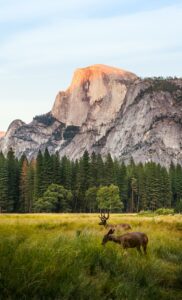
Yosemite National Park – California, USA
Yosemite National Park is renowned for its breathtaking granite cliffs, towering waterfalls, and ancient sequoia groves. With over 750 miles of trails, it offers a multitude of backcountry camping opportunities for all skill levels. From the iconic Half Dome and Yosemite Valley to the remote and serene Tuolumne Meadows, Yosemite’s backcountry promises awe-inspiring adventures amidst its diverse ecosystems.
Notable Yosemite backcountry camping areas:
-
- Yosemite Valley: Explore the heart of the park, camp near iconic landmarks like El Capitan and Bridalveil Fall, and embark on challenging hikes to the High Sierra camps.
- Glacier Point: Enjoy stunning panoramic views of Yosemite Valley, camp at the Glacier Point Campground, and set off on scenic hikes to destinations like Sentinel Dome and Taft Point.
- Tuolumne Meadows: Discover the beauty of Yosemite’s high country, with pristine alpine meadows, sparkling lakes, and granite peaks. Camp at Tuolumne Meadows Campground and explore trails like Cathedral Lakes and Vogelsang High Sierra Camp.
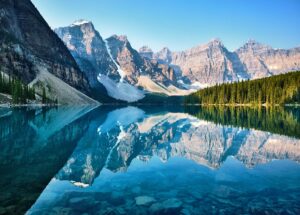
Banff National Park – Alberta, Canada
Banff National Park offers an enchanting backcountry camping experience amidst the Canadian Rockies. Its pristine lakes, awe-inspiring glaciers, and rugged mountain peaks create a postcard-perfect setting. With over 1,000 miles of trails, adventurers can immerse themselves in the serenity of the park’s backcountry.
Notable Banff backcountry camping areas:
-
- Lake Louise: Set up camp near the iconic turquoise waters of Lake Louise and explore nearby trails like the Plain of Six Glaciers or hike to stunning viewpoints like Big Beehive.
- Skoki Valley: Experience a true alpine wilderness adventure by camping in Skoki Valley, surrounded by picturesque meadows and peaks. Hike to destinations such as Hidden Lake, Boulder Pass, and Deception Pass.
- Assiniboine Provincial Park: While technically outside Banff National Park, this neighboring provincial park is a must-visit for backcountry enthusiasts. Camp near the majestic Mount Assiniboine, also known as the “Matterhorn of the Rockies,” and enjoy breathtaking alpine scenery.
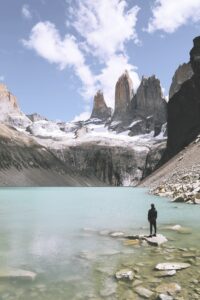
Torres del Paine National Park – Patagonia, Chile
Torres del Paine National Park showcases the raw beauty of Patagonia, with its rugged mountains, turquoise lakes, and expansive glaciers. This remote and pristine park offers unparalleled backcountry camping opportunities for those seeking an unforgettable adventure in one of the world’s most breathtaking natural settings.
Notable Torres del Paine backcountry camping areas
-
- Base Torres: Camp at the foot of the iconic granite towers and witness the sunrise casting a golden glow on these magnificent peaks. Hike the challenging but rewarding trail to the lookout point for an unforgettable view.
- Valle del Francés: Set up camp amidst the dramatic landscapes of the French Valley, surrounded by towering granite walls and hanging glaciers. Explore the diverse trails and be rewarded with awe-inspiring vistas.
- Grey Glacier: Camp near the stunning Grey Glacier and embark on a glacier hike or boat tour to witness the mesmerizing blue ice formations up close.
These popular backcountry camping destinations offer a gateway to extraordinary natural wonders and unforgettable experiences. Whether you’re drawn to the granite cliffs of Yosemite, the alpine beauty of Banff, or the untamed wilderness of Torres del Paine, these destinations will immerse you in the wonders of nature and create memories that will last a lifetime.
The Bottom Line
Backcountry camping is a doorway to exploration, self-discovery, and a deeper connection with the natural world. As we have delved into the essence of backcountry camping, explored its benefits, discussed essential gear and preparation, shared tips for a successful experience, and highlighted popular destinations, it becomes evident that this outdoor pursuit offers a unique and transformative experience.
By venturing into the remote and untouched corners of the wilderness, we escape the hustle and bustle of modern life and find solace in the serenity of nature. Backcountry camping allows us to disconnect from technology, reconnect with ourselves, and gain a fresh perspective on what truly matters. The rejuvenating effects of wilderness immersion and the opportunities for self-reliance and resilience contribute to personal growth and a renewed appreciation for the natural world.
However, it is crucial to approach backcountry camping with responsibility and respect. Adhering to Leave No Trace principles, practicing proper wildlife management, and following camping regulations ensure the preservation of these pristine environments for future generations to enjoy. By treading lightly and leaving the wilderness as we found it, we become stewards of the natural world, fostering its conservation and sustainability.
So, whether you choose to embark on a backcountry adventure in Yosemite National Park, explore the alpine wonders of Banff, or experience the untamed beauty of Torres del Paine, embrace the opportunities that backcountry camping provides. Immerse yourself in the tranquility of nature, challenge yourself physically and mentally, and let the wilderness guide you on a journey of self-discovery and connection.
As you plan your backcountry camping trip, remember to equip yourself with the necessary gear, prioritize safety, and thoroughly research your chosen destination. Preparation is key to ensuring a memorable and enjoyable experience. And above all, cherish the moments spent under the starlit skies, the encounters with wildlife, and the awe-inspiring landscapes that will forever leave an indelible mark on your soul.
Embrace the call of the wild and let backcountry camping be your gateway to extraordinary adventures, personal growth, and a lifelong love affair with the great outdoors.
We’ll See You in the Backcountry!
Looking to explore the backcountry with the benefits of car camping? Check out our Beginners Guide to Overlanding.
Prefer the ease and access of camping closer to home? Learn all about Front Country Camping here.
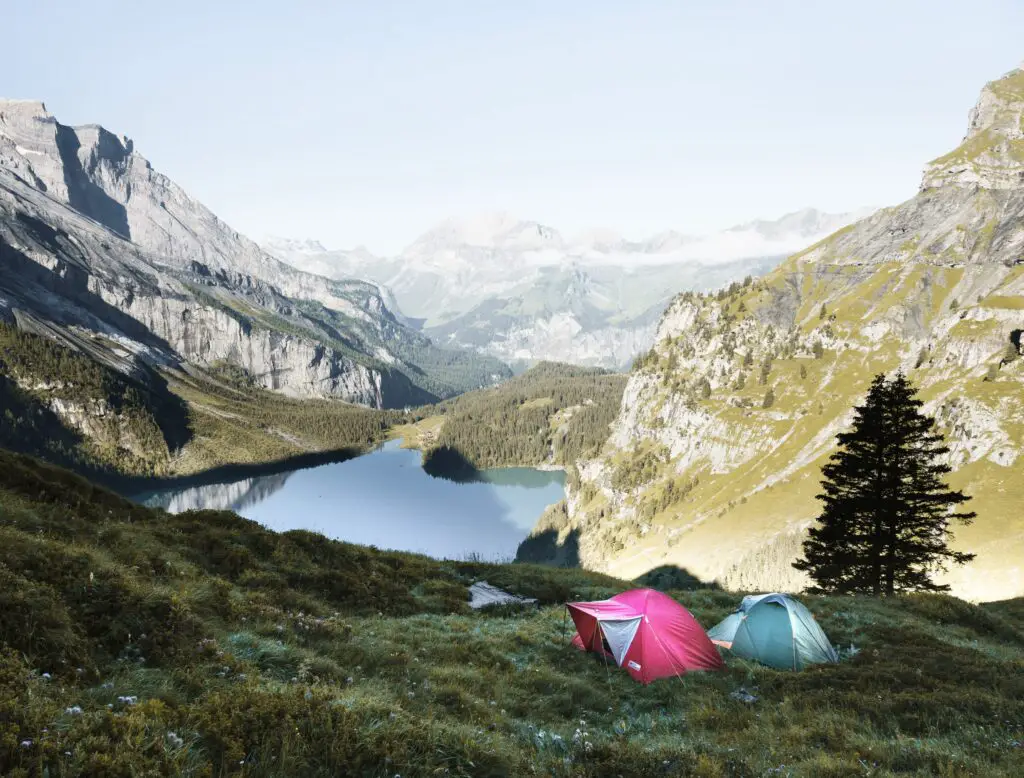





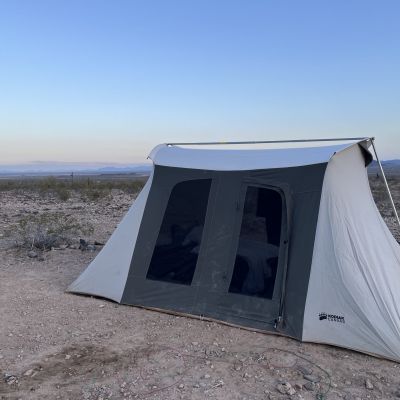




Leave a Reply